UNS Held a National Scientific Seminar resulting from Collaboration between 3 Faculties
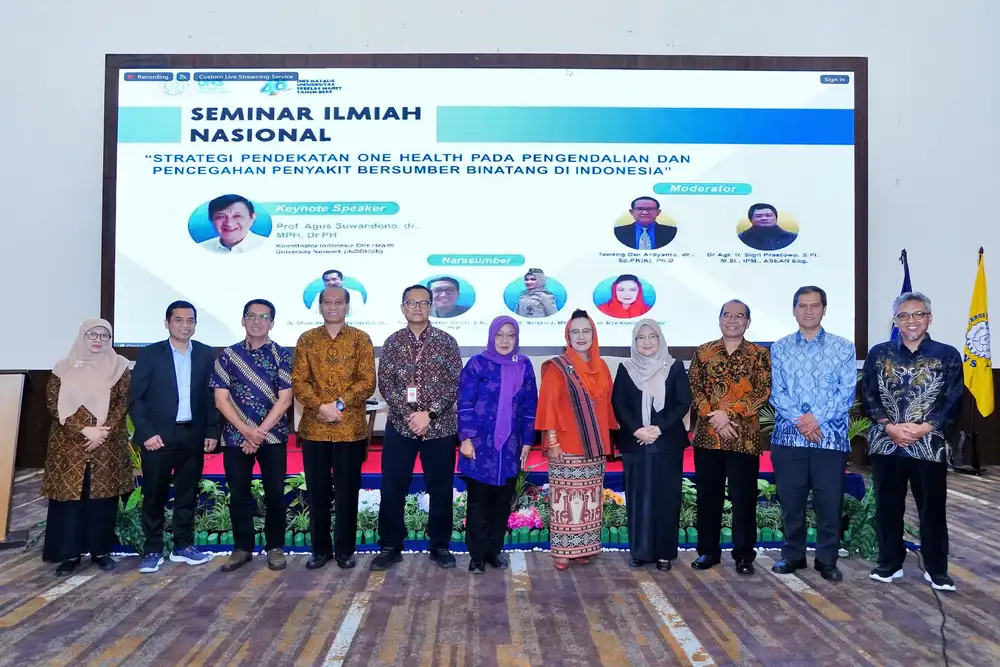
Animal-based diseases are still a health problem in society with quite high morbidity and mortality rates, have the potential to cause extraordinary events (KLB) and/or epidemics, as well as causing economic losses to the community. Success in controlling and preventing animal-based diseases requires synergy between various related parties.
Seeing this problem, the Faculty of Medicine (FK) Universitas Sebelas Maret (UNS) collaborated with the Faculty of Mathematics and Natural Sciences UNS and the Faculty of Animal Husbandry UNS held a National Scientific Seminar with the theme "Strategies for the Control and Prevention of Animal-Sourced Diseases in Indonesia" on Saturday (8/6/2024) in the Ballroom of the Ki Hadjar Dewantara Tower Building, UNS.
Presenting the keynote speaker, Prof. Agus Suwandono, dr., M.PH, Dr.PH from Indonesia One Health University Network (INDOHUN) and 4 resource persons, namely Dr. Rita Kusriastuti, dr., M.Sc who is Chair of the Indonesian Association for the Eradication of Parasitic Diseases; drh. Arif Wicaksono, M.Si as Coordinator of Animal Disease Prevention and Eradication Substances (P3H); Triwibowo Ambar Garjito, S.Si., M.Kes., Ph.D from the Center for Public Health and Nutrition Research, Health Research Organization, BRIN; Dr. Dhani Redhono Harioputro, dr., Sp.PD., KPTI from FK UNS. This seminar, which was held in a hybrid manner, was attended by more than 400 participants both offline and online.
Acting Officer Vice Rector for Academic and Student Affairs UNS, Prof. Dr. Ir. Ahmad Yunus, MS, in his speech said that Indonesia, which has a tropical climate, is very vulnerable to diseases caused by animals.
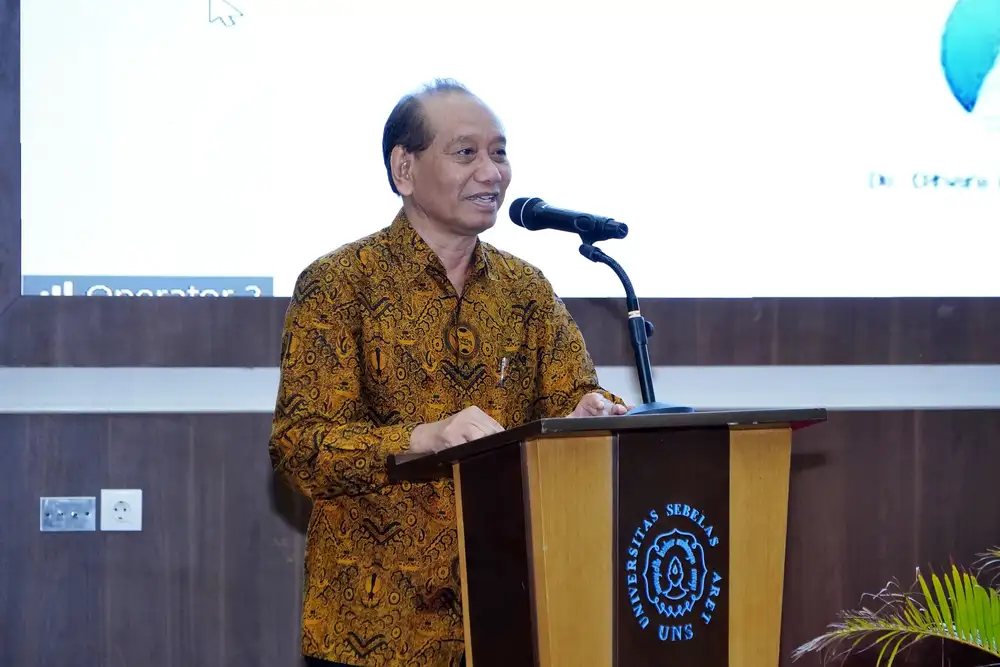 |
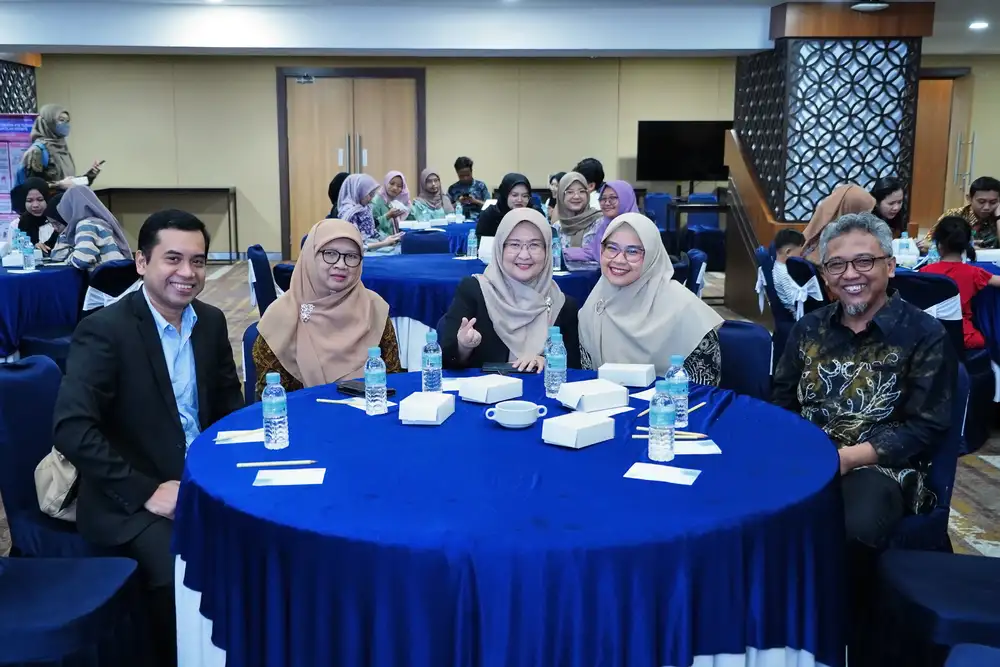 |
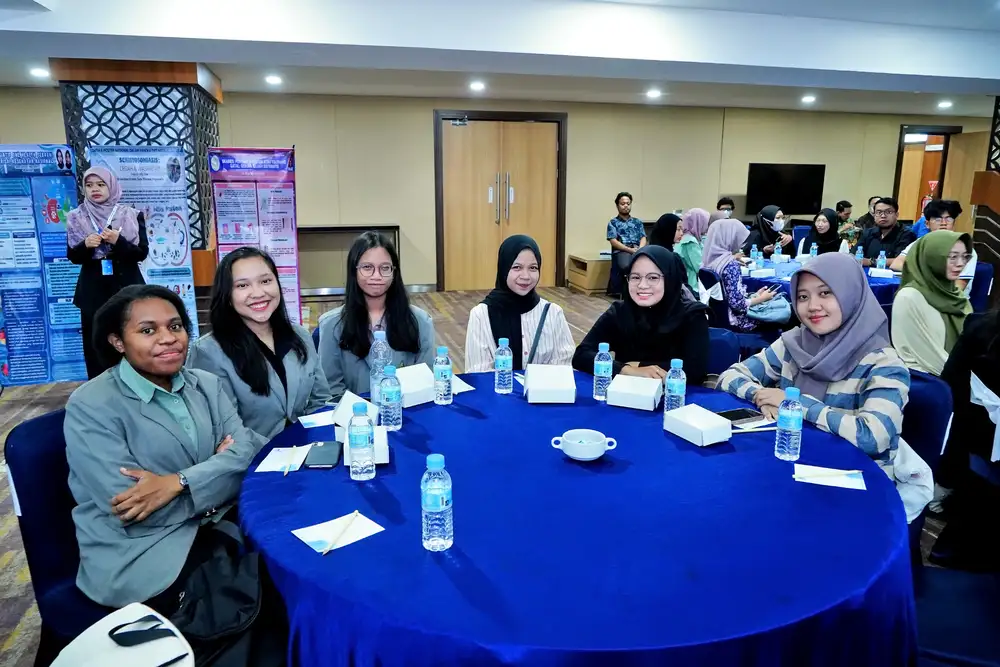 |
(Swipe for the next photos)
"If we look at it like this, we should be able to overcome diseases that originate from animals, from small ones from mosquitoes such as malaria, dengue fever to birds or bats and so on. Moreover, this country is a tropical country, so all living creatures, including microorganisms, never have time to rest because there is never a temperature below 4 degrees Celsius. So we need good innovation compared to countries with low temperatures," he explained.
According to Prof. Yunus, although countries with tropical climates have great challenges, the extraordinary natural resources in tropical countries have extraordinary potential to be developed.
"Natural resources have been given by God the Creator, but we cannot do it alone, we must unite, sit together, pharmacists, biologists and medical experts. If it's not like that, it won't produce the necessary products. We have to know that this tropical climate, despite its big challenges, also provides natural resources to be mixed and utilized, it's just a matter of whether we want to think about whether to process them or not," he said.
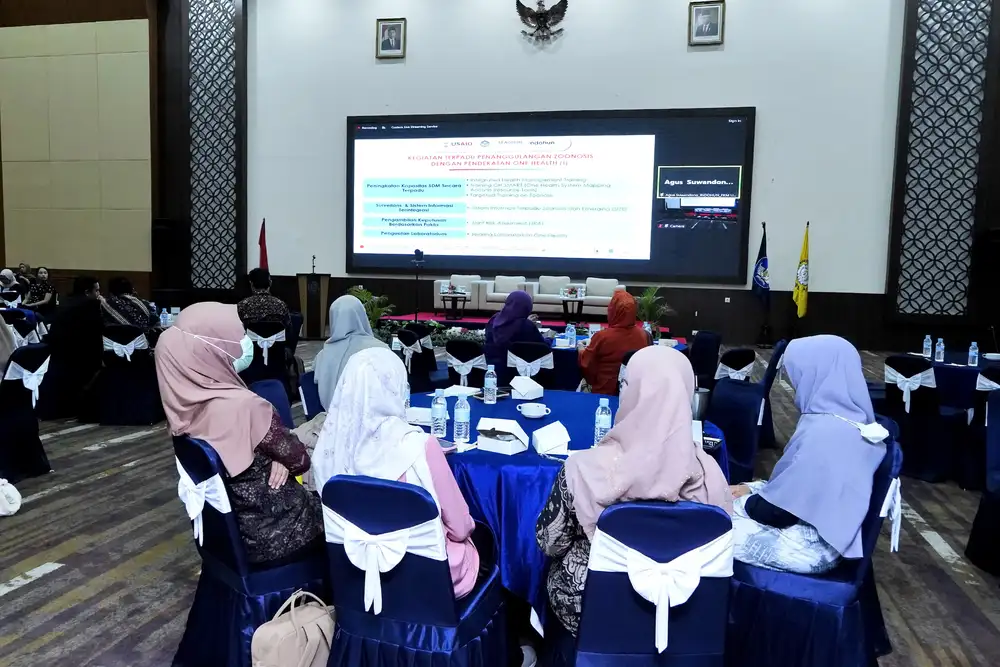 |
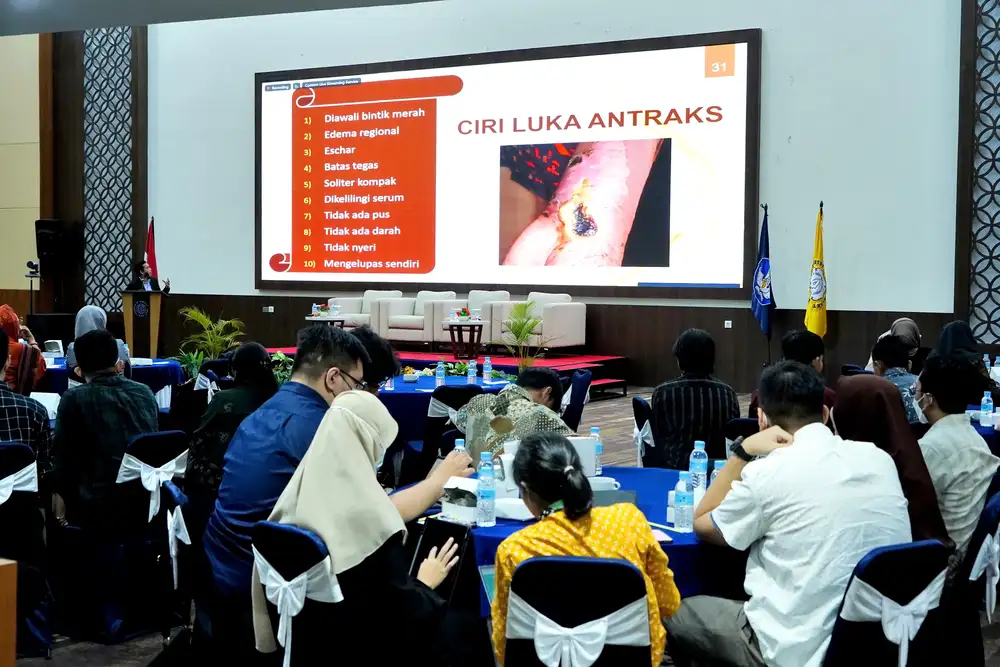 |
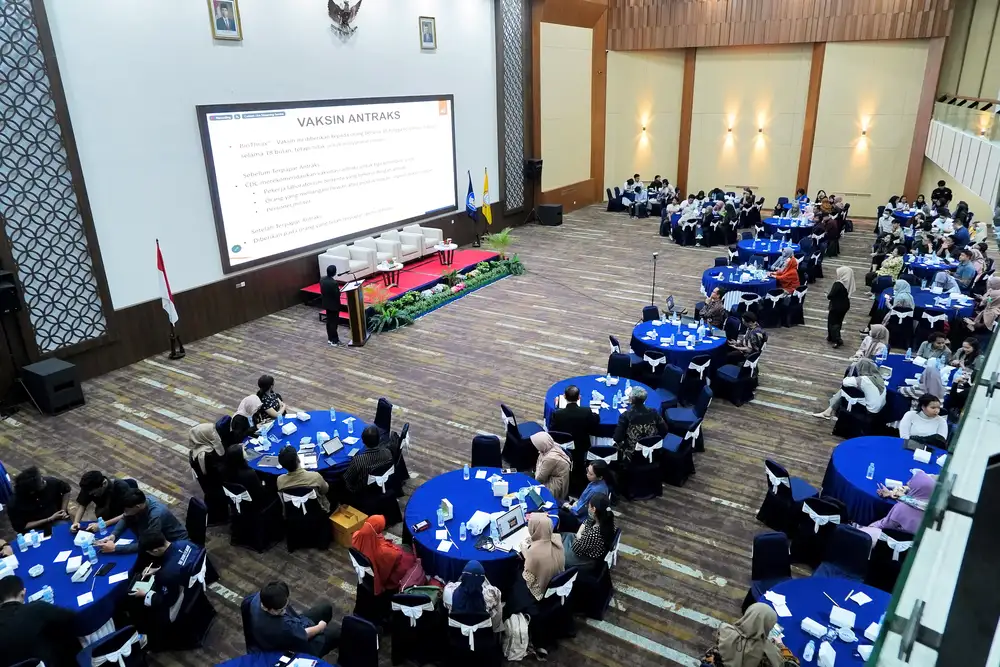 |
(Swipe for the next photos)
Prof. Agus Suwandono in his presentation explained that 3 out of 5 new emerging infectious diseases every year are zoonotic diseases.
“This disease or infection can be naturally transmitted from vertebrate animals to humans and vice versa or it can also be transmitted back and forth between animals and humans. The causes of this disease can be bacteria, parasites, viruses, fungi and non-conventional agents," he explained.
Socio-cultural factors such as eating wild animals, contacting or keeping wild animals also increase the risk of spreading this disease. Apart from that, there is a high potential for mosquitoes, rats and bats as vectors and reservoirs of disease in Indonesia.
"Apart from causing loss of life, the emerging reemerging disease also caused an economic shock in the world. "The biggest example is Covid-19 which resulted in no less than 60 countries experiencing economic collapse due to the Covid-19 problem," he explained.
So according to him, the One Health concept is the best approach to dealing with this zoonotic disease. One Health itself is known as the health of humans, animals and ecosystems which are interconnected between the three and other related sectors. This includes an approach that prioritizes cooperation, coordination, communication and collaboration (4K) between disciplines (transdisciplinary) and between sectors (cross sectoral) to anticipate potential or risks and control zoonoses originating from the interface between animals, humans and ecosystems and problems. other complex health.
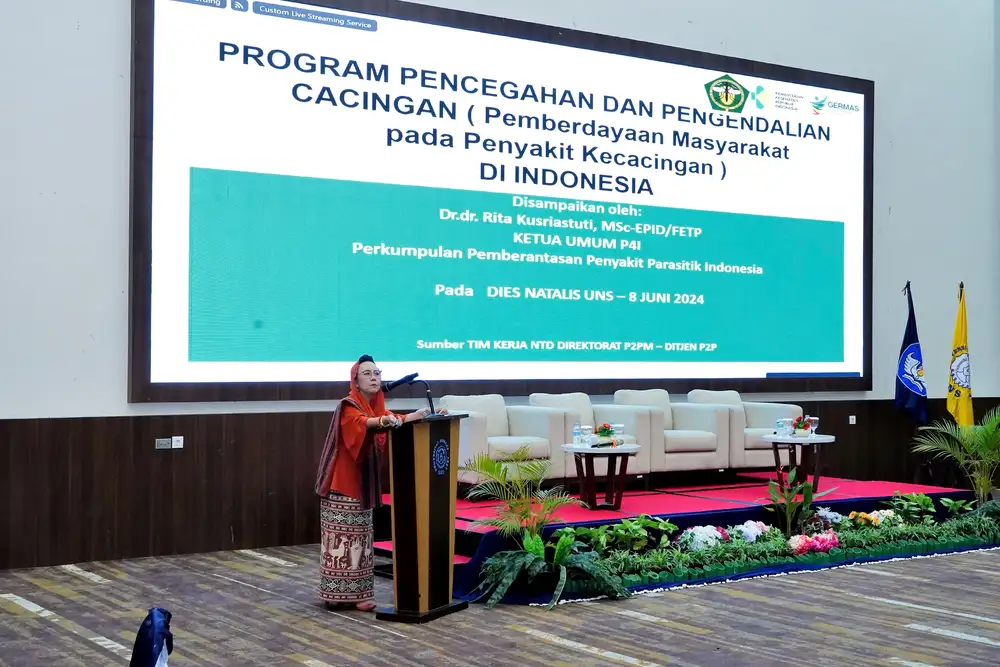 |
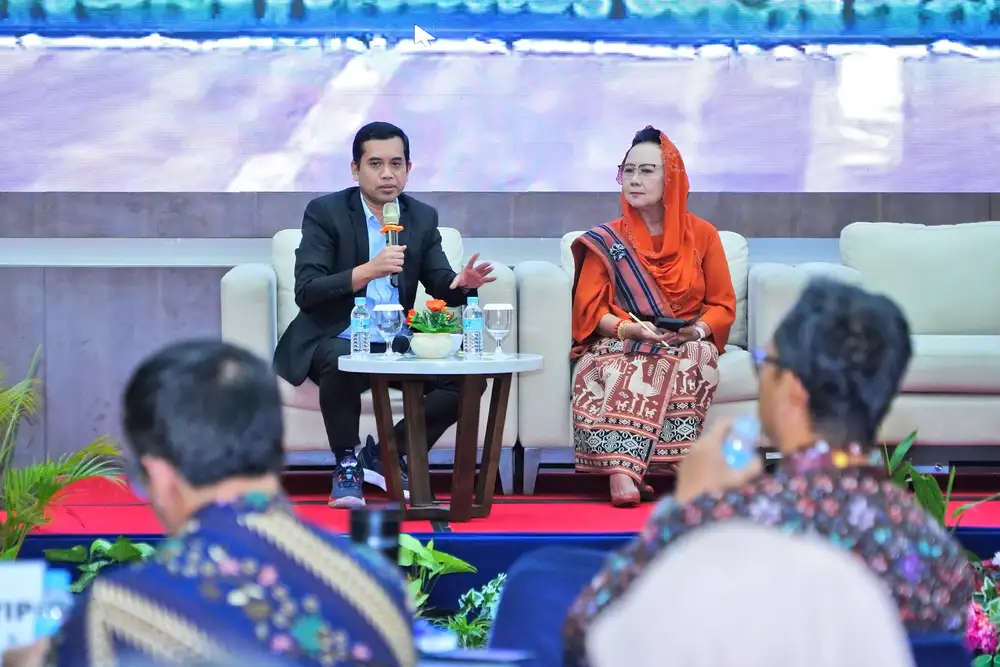 |
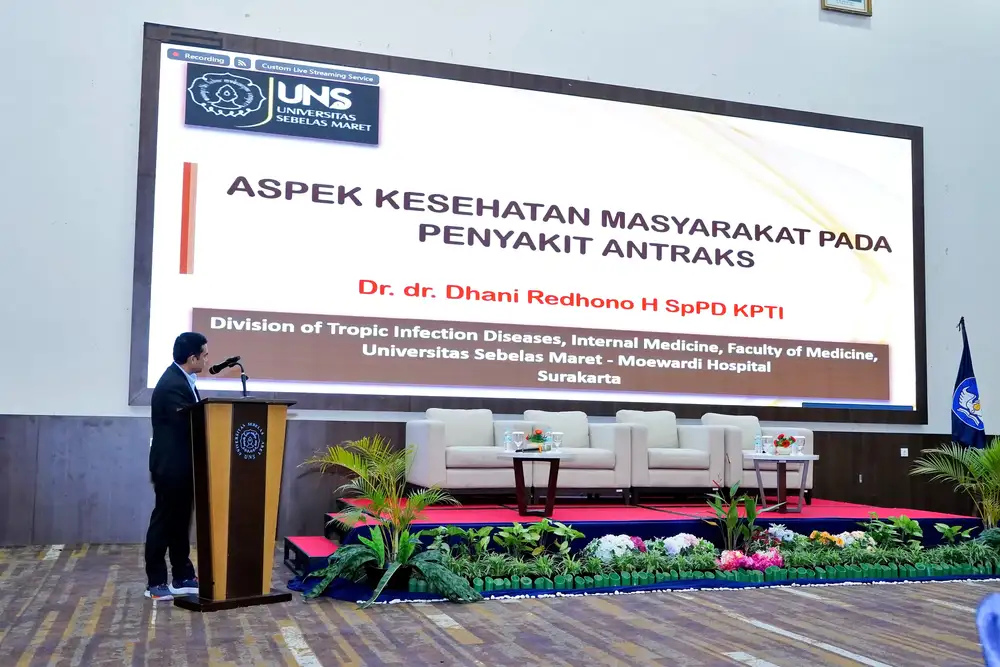 |
(Swipe for the next photos)
However, there are still many challenges to implementing the One Health concept. According to Prof. Agus Suwandono needs to have a permanent Zoonoses Control Coordination Team both at the national and sub-national levels so that they can implement the principles of cooperation, coordination, communication and collaboration in efforts to detect, prevent and respond quickly to the threat of zoonoses.
"Apart from that, it is felt necessary to insert One Health soft skills competencies in courses at faculties with health groups," he said.
Public Relations of FK UNS
 bahasa indonesia
bahasa indonesia 



